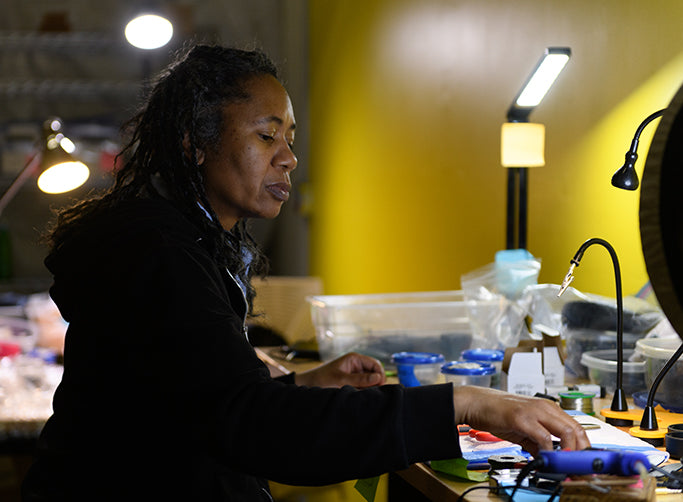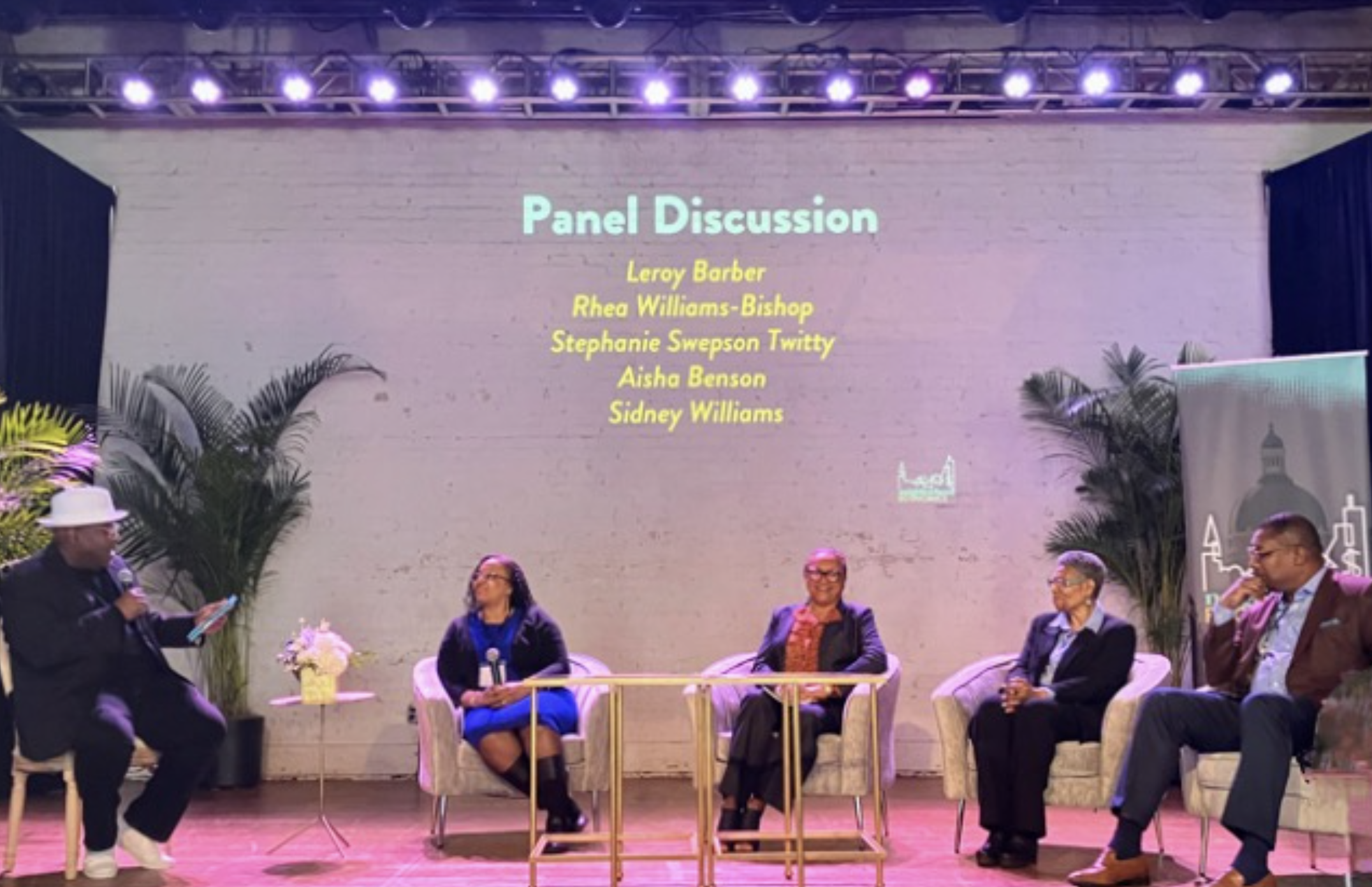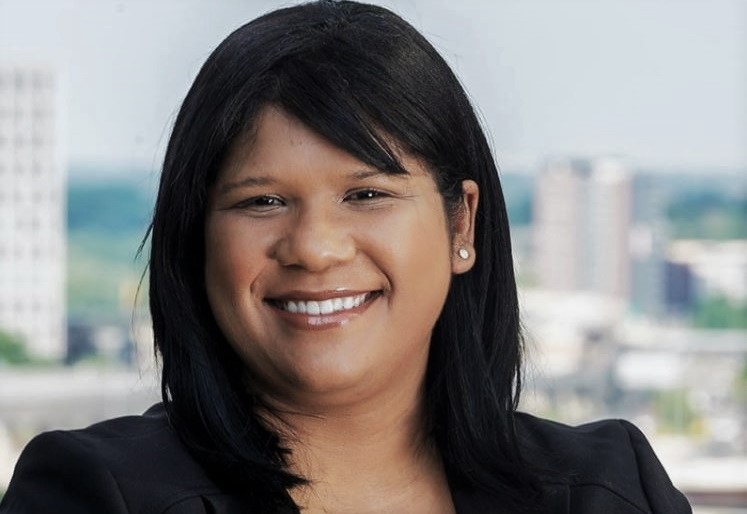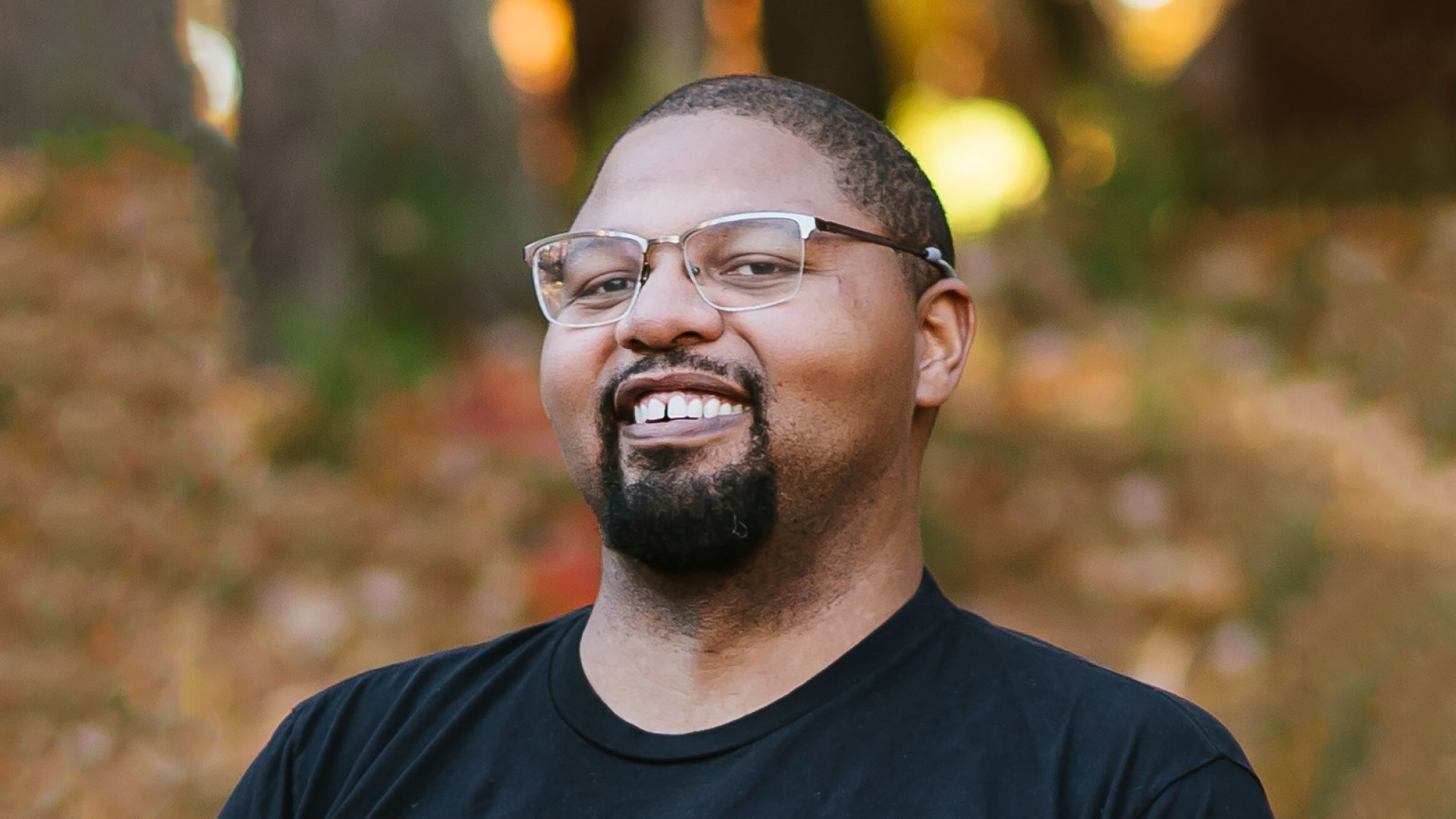ImpactAlpha, Feb. 15 – You may have heard of SAFE notes, “simple agreements for future equity” that reward startup investors with discounts on future shares. Here come “impact notes” that instead reward founders for fulfilling social-impact objectives.
A Grammy-winning producer and his wife and co-founder in Oakland, Calif can recoup some of the equity in their electronic “talkbox” company because they are manufacturing the musical instrument in Oakland and creating good jobs and opportunities for employee health and wealth creation.
Bosco and Maya Kante founded Electrospit to commercialize the easy-to-use device that has been used to electrify voices in musical hits by Bruno Mars and David Guetta, Dua Lipa, Missy Elliot and Madonna. Last year, Stevie Wonder used the instrument to record the Sesame Street theme song for the 50th anniversary special of the children’s show.
The nonprofit venture capital firm ICA is pioneering the use of “impact notes” to return equity shares to the Kantes as they deliver on impact targets such as creation of full-time local jobs, provision of health benefits and distribution of ownership and profits with employees. Other targets include recruiting diverse community members to fill board roles and management positions.
“Our values are already aligned,” Bosco Kante told ImpactAlpha. Electrospit is Black and women-owned, half the employees are women and the company is working towards higher pay and profit sharing. “ICA came to us and said, ‘Hey, we’re gonna give you better terms, as long as you just do what you already said you’re going to do.’”
Electrospit also has raised capital through Kiva, Kickstarter, Oakland-based Runway and Zoo Labs, and, more recently, Republic.
Simple agreement
ICA’s impact note is built on a SAFE, or simple agreement for future equity. Silicon Valley startup accelerator Y Combinator introduced the SAFE deal structure in 2013 as a way to quickly get investor money to founders of early stage startups. SAFEs enable an advance investment in a company until a larger round can occur. In exchange for fast cash and few terms, investors are rewarded with discounts on future shares or a cap on the company’s valuation (assuring the minimum stake the investor will get in the next round). Unlike traditional convertible notes, SAFEs carry no interest and or maturity date.
“We saw what Y Combinator had done with the SAFE note in venture capital,” said ICA’s John Gough. “We thought, ‘why don’t we create something that more embodies our mission and goals?’”
Rather than reward investors, the Oakland fund revamped SAFEs to compensate founders for creating good jobs, employee wealth and diverse teams. Reaching impact goals triggers an increase in the valuation cap and/or a reduction in the investor discount. Both outcomes return equity back to founders.
Impact-linked finance
Impact notes built on SAFEs are part of a growing roster of impact-linked finance structures that incentivize and reward social or environmental outcomes.
In dozens of experiments with Social Impact Incentives, or SIINCs, donor organizations are partnering with investors to top up revenues of social enterprises that drive their services down market to low-income clients. The German consulting firm Roots of Impact introduced SIINCs in 2016.
Clínicas del Azúcar, a string of low-cost diabetes clinics in Mexico, for example, increased the penetration of its services to low-income populations over a six-month period. Blood sugar levels improved. For hitting those six-month impact targets, Clínicas earned a $64,000 payment on top of its top-line revenues from the Swiss Agency for Cooperation and Development.
In a separate experiment, agricultural lender Root Capital issued $11.5 million in loans over two years to agribusinesses across Latin America deemed too small or too risky by other lenders. The nearly three dozen businesses went on to generate almost $50 million in revenue and pay $41 million to smallholder farmers in Colombia, Costa Rica, Guatemala, Honduras, Mexico, Nicaragua and Peru. For the additional risk and cost, SDC awarded Root Capital an additional $1 million, a bargain in terms of impact.
“Every financial instrument can be linked to impact,” Roots of Impact’s Bjoern Struewer told ImpactAlpha. “You just need to find the variable you can play with.”
In sub-Saharan Africa, Aceli Africa deploys donor capital to compensate financial institutions for the lower revenues and higher costs of originating loans to new, high-impact African agribusinesses.
In Mexico, New Venture’s VIWALA fund links the repayment multiple on its revenue-based loans to impact outcomes. If a borrower hits the agreed upon targets, the overall repayment multiple is lowered from 1.5x to 1.35x. Beneficial Returns, a Bay Area loan fund manager with more than 40 investments in Latin America and Southeast Asia, waives the final payment on loans if enterprises meet goals, such as installing X solar panels in Y years.
In returning equity to founders, ICA is unique, says Struewer. “We don’t see this often. Nobody gives up returns voluntarily.”
Community VC
ICA is one of only a handful of U.S. community development financial institutions that invest venture capital in early stage startups. Its CDFI status gives it access to federal funds through the U.S. Department of the Treasury as well as to bank capital under the Community Reinvestment Act. ICA also receives low-interest program-related investments from philanthropic investors such as Living Cities, San Francisco Foundation and California Wellness Foundation.
In the past year, ICA raised a $10 million fund, composed of about $6 million in debt through program-related investments and about $4 million in grants or recoverable grants.
ICA has experimented with impact-linked structures to expand access to flexible capital for diverse-led Bay Area businesses that create good local jobs, such as Maker Studio, Red Bay Coffee, Don Bugito and Charlotte Truffles.
After multiple investments in Oakland bakery Firebrand, for example, ICA worked with the company to convert to a steward ownership model. That helped Firebrand complete a $8.2 million funding round with investors including Candide, Cienega Capital, 45North and Purpose. ICA’s convertible notes converted to equity; it donated a third of its stake to Firebrand’s employee stock option pool.
The ICA Impact Note sharpens the impact metrics and boosts the reward for founders, says Gough. For early stage founders building companies alongside their communities, the structure aligns their mission with their financial upside.
“We’re showing that building a business can be done in a different way,” says Kante. “You can include the community and you can do it at home if you’re strategic and creative.”











